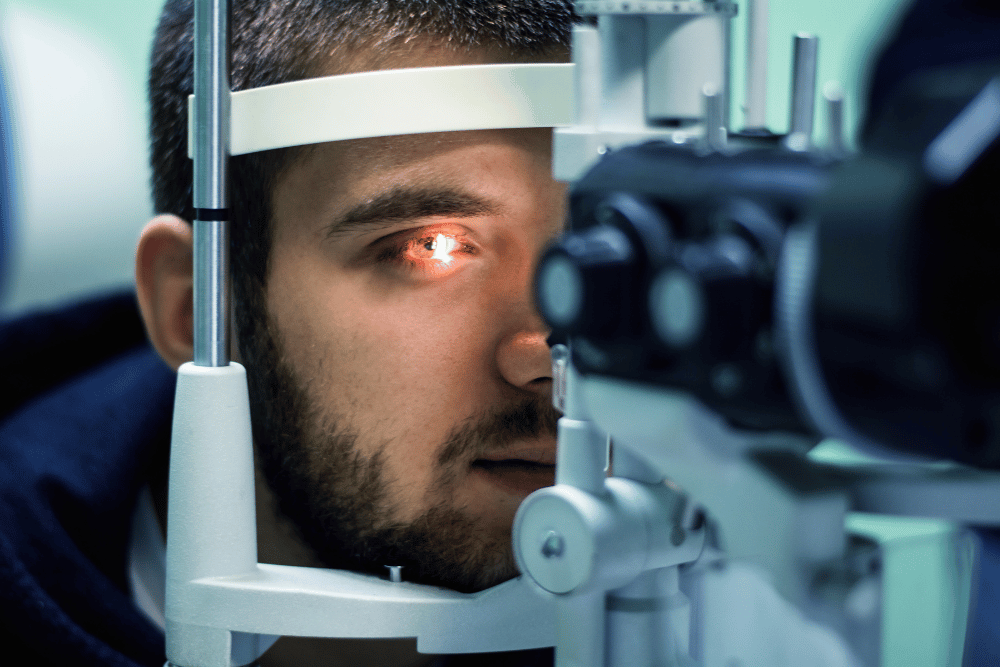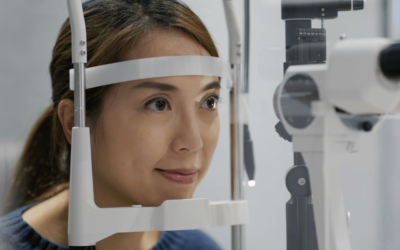When most people think about getting an eye exam, they usually think about routine eye exams to get their vision checked or shop for a new pair of glasses. However, a medical eye exam goes far beyond a simple prescription check. At Ideal EyeCare, our optometrists in Council Bluffs and Omaha can perform both routine and medical eye exams. Let’s take a closer look at the differences between the two types of exams and what type of insurance coverage you need for them.
What is a routine eye exam?
Routine eye exams are familiar to most people. Defined by insurance companies as “an office visit to check vision, screen for eye disease, and/or update eyeglass or contact lens prescriptions,” these exams are vital for maintaining good eye health and catching issues early. They are typically recommended annually or bi-annually, depending on factors like age and risk.
During a routine eye exam, your optometrist evaluates your visual acuity (how clearly you can see at a distance), checks for early signs of eye disease, and updates your glasses or contact lens prescription as necessary. A central part of these exams is the refraction test, where you hear the familiar question, “Which is clearer: option A or option B?” This test helps your eye doctor find your precise prescription.
Routine exams often diagnose vision issues like nearsightedness, farsightedness, or astigmatism, which are not considered medical conditions.
What is a medical eye exam?
Medical eye exams are more in-depth, focusing on diagnosing, treating, or monitoring specific eye conditions or symptoms. These exams are necessary when you have particular concerns or are following up on an existing condition. For instance, if you experience chronic eye pain or flashes of light, your eye doctor will conduct a medical exam.
Common diagnoses from medical exams include conjunctivitis (pink eye), glaucoma, cataracts, or dry eye syndrome—all conditions requiring specialized treatment or management.
Does vision insurance cover both types of exams?
Vision plans will only cover routine eye exams, not medical ones. Most vision plans also offer discounts on eyewear and contact lenses. For medical conditions, you’ll need to use your medical insurance, which generally covers medical eye exams, treatment, and follow-ups for existing eye issues.
Sometimes, the type of exam you receive may differ from your initial reason for visiting the eye doctor. For example, during a routine exam, your optometrist might discover signs of a medical condition. If this happens, the visit may be reclassified as a medical exam, or a separate medical exam might be scheduled.
In summary
Routine exams emphasize preventative care and vision correction, while medical exams address specific eye health issues. Both are vital for maintaining healthy eyes! At Ideal EyeCare, we provide comprehensive eye exams in Council Bluffs, IA, and Omaha, NE as well as treatments for various medical conditions. Please contact us today to schedule a visit or you can book an appointment online. We accept most major vision and medical insurance plans, so be sure to visit our insurance page before your appointment to confirm your coverage.




